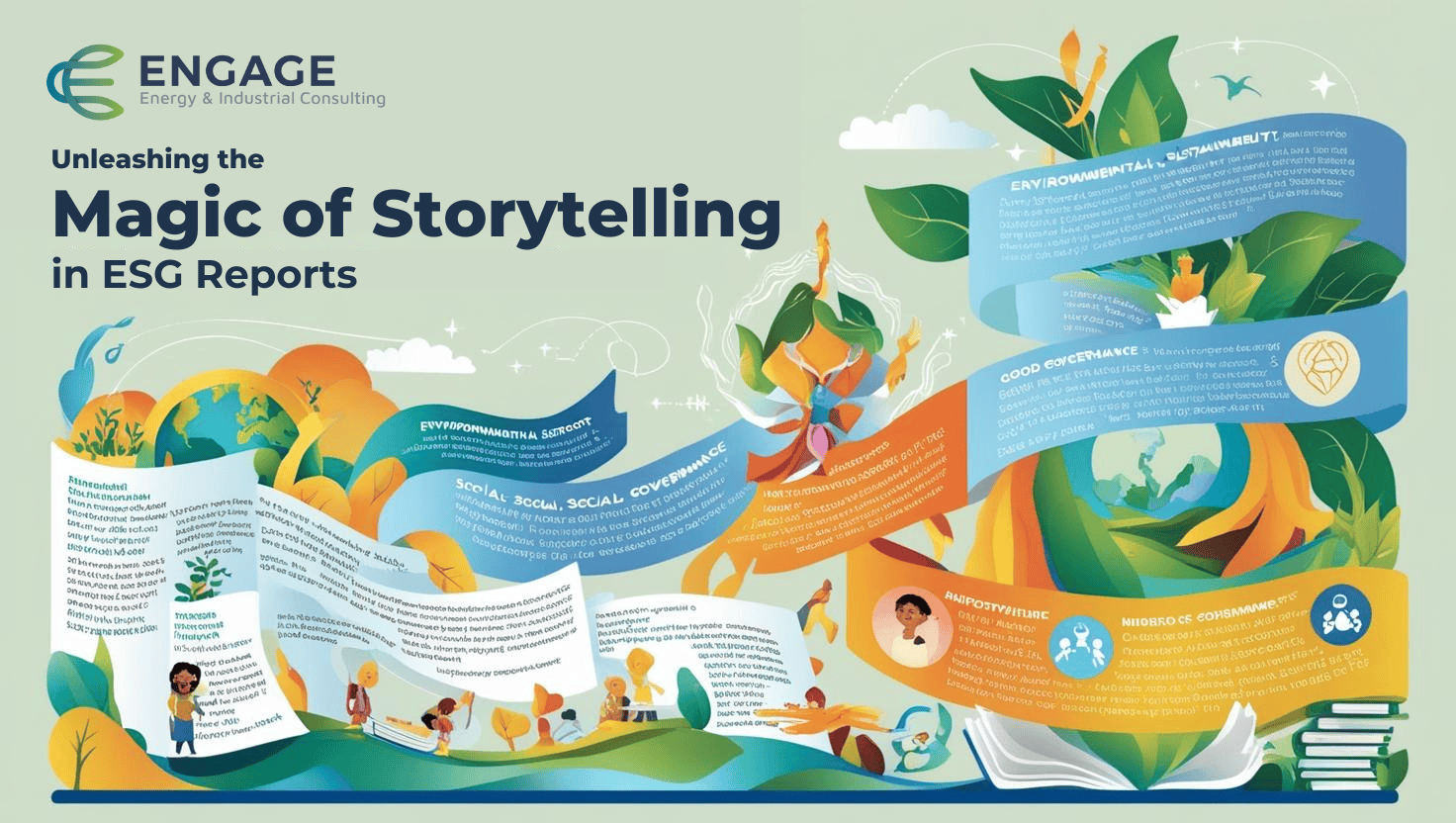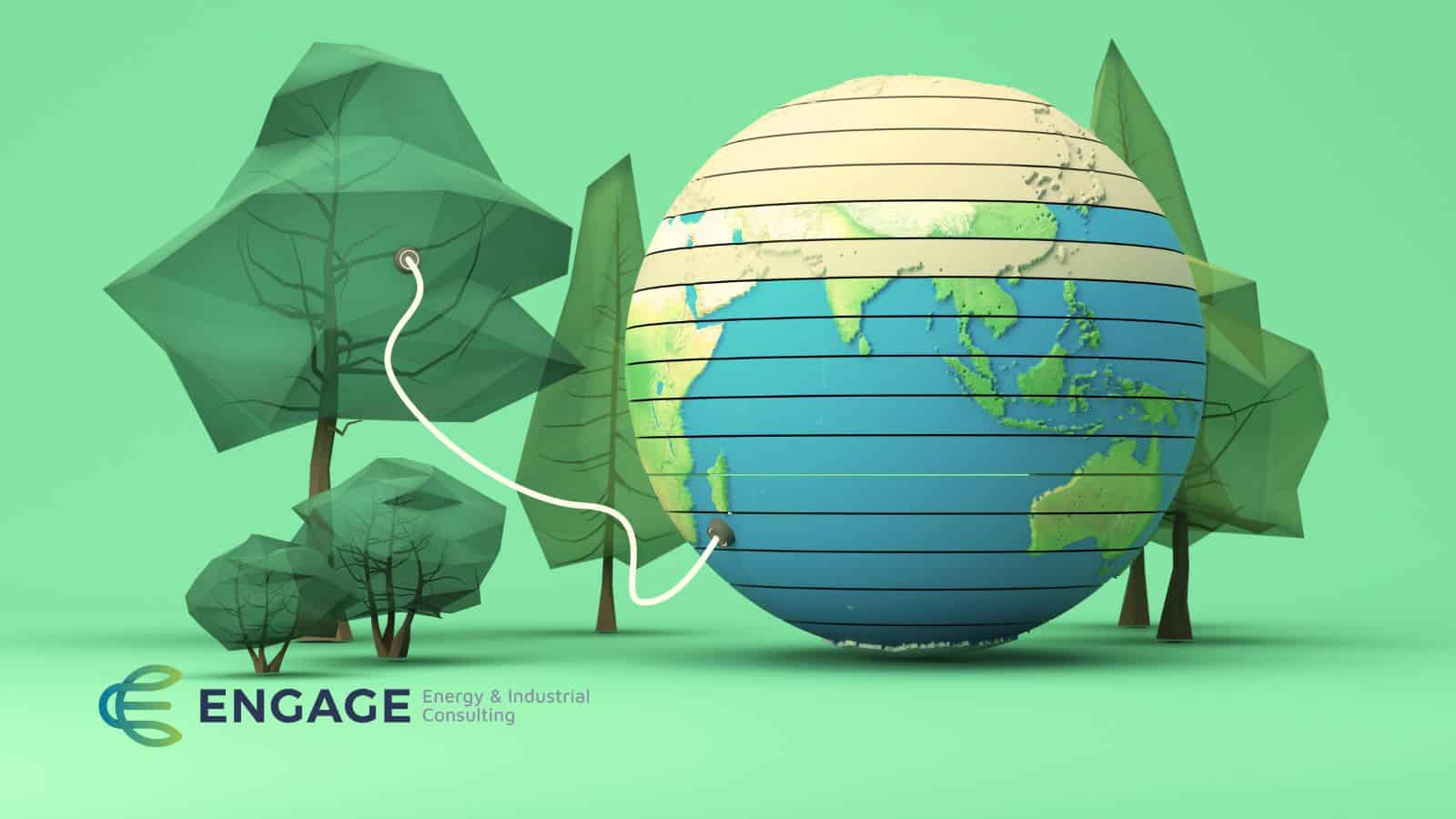In recent years, sustainability has transitioned from being a buzzword to becoming a core strategy for American businesses. With increasing awareness of environmental issues, social responsibility, and corporate governance (ESG), companies across the United States are realizing that integrating sustainable practices is not just about doing good—it is also about driving long-term success.
In this blog, Engage Energy and Industrial Consulting tackle the evolution of sustainability and the areas in which all businesses should consider for improving sustainable initiatives.
The Evolution of American Sustainability in Business
Historically, many American businesses viewed sustainability as a cost center, an obligation that might slow down growth. Sustainability can offer American businesses a competitive advantage and increase profit margins long term. In the past, the economy has been a strong indicator for forecasting green initiative growth. As do interest rates. In 2023 we experienced interest rate levels as high as previously seen in 2008 when the stock market took a big hit and everyone from the guy next door to large corporations had to completely shuffle their projections. Economic outlook then fuels speculation for green industry expenditures.
Sustainability initiatives have historically been postponed in these times of economic crisis. When the American government incentives green initiatives for sustainable business in 2010 many companies jumped on the opportunities for tax credits and used them wisely to invest in their future sustainable growth.
Green innovation can lead to cheaper energy and more efficient production processes. Sustainability helps to streamline business processes and reduce wasteful spending. It can also help companies with a competitive advantage.
Today, sustainability is seen as an opportunity to innovate, reduce costs, and build a resilient brand.
This Change is Driven by Several Factors:
- Consumer Demand: Modern consumers are more conscious of the environmental and social impact of their purchases. They are increasingly favoring companies that demonstrate a commitment to sustainability. According to a Nielsen survey, 81% of global consumers feel strongly that companies should help improve the environment.
- Regulatory Pressures: Governments at various levels are implementing stricter environmental regulations. Companies that proactively embrace sustainable practices comply with regulations, avoiding fines and improving their public image.
- Investor Expectations: Investors are increasingly considering ESG factors when making decisions. Companies with strong sustainability practices are less risky and more likely to deliver long-term value. Research from a study completed in November of 2023 showed that green patent filings can “boost gross domestic product by 1.7 percent after five years compared with a baseline scenario. And that’s under our most conservative estimate—other estimates show up to four times the effect.”
- Cost Savings: Sustainable practices often lead to significant cost savings. For example, energy-efficient technologies can reduce utility bills, while waste reduction strategies can lower disposal costs.
Key Areas of Focus for Sustainability

For American businesses, sustainability encompasses a broad range of activities. Today, the World Health Organization estimates that 12.6 million people die from environmental health issues annually. Consumers in the United States and around the world are consciously making changes to their purchasing habits. They are looking for American businesses with sustainability initiatives. Here are just a few areas to consider implementing in your business plan.
Key Areas Include:
- Environmental Responsibility: This involves reducing the carbon footprint, conserving natural resources, and minimizing waste. Companies are increasingly investing in renewable energy, sustainable sourcing, and eco-friendly product design.
- Social Responsibility: Beyond the environment, sustainability also includes a commitment to social issues. This can range from ensuring fair labor practices in the supply chain to supporting diversity and inclusion within the company.
- Governance: Good corporate governance is essential for sustainability. This includes transparent reporting, ethical business practices, and a strong commitment to stakeholder engagement.
Do these sound familiar? Most businesses today recognize ESG as part of their sustainability initiatives. In fact, Engage Energy and Industrial Consulting helps many American businesses with ESG reporting annually. Our work to help American businesses is driven by our mission to make America a leader in global sustainability. After all we are all stewards of this planet for the next generation.
Examples of Sustainability in Action
Many American companies are leading the way in sustainability. Companies from every footprint and every industry are making strides to actively reduce their carbon footprint, use recycled components, and develop cleaner energy sources for our planet. Together, we can all have influence.
- Patagonia, an outdoor clothing brand, has long been a pioneer in environmental sustainability. The company uses recycled materials in its products, supports conservation initiatives, and encourages customers to buy only what they need to reduce consumption.
“99% of the products in our Spring 2024 line are made with some preferred material input, which includes recycled materials.” -Patagonia
- Tesla is revolutionizing the automotive industry with its electric vehicles and solar energy products. By reducing dependence on fossil fuels, Tesla is contributing to a more sustainable future.
“If you don’t have sustainable energy, you have unsustainable energy. The fundamental value of a company like Tesla is the degree to which it accelerates the advent of sustainable energy faster than it would otherwise occur.” -Elon Musk
- Microsoft has committed to becoming carbon negative by 2030. The company is investing in renewable energy, reducing its carbon emissions, and funding projects that remove carbon from the atmosphere.
“By the time we see that climate change is really bad, your ability to fix it is extremely limited… The carbon gets up there, but the heating effect is delayed. And then the effect of that heat on the species and ecosystem is delayed. That means that even when you turn virtuous, things are actually going to get worse for quite a while.” –Bill Gates
The Business Case for Sustainability
The business case for sustainability is clear. American businesses that prioritize sustainability are better positioned to attract and retain customers, comply with regulations, and achieve long-term profitability. Furthermore, sustainable businesses are more likely to innovate and adapt to changing market conditions, giving them a competitive edge. No matter the economic climate, sustainability ensures a long term strategy for growth.
“Sustainable development is a fundamental break that’s going to reshuffle the entire deck. There are companies today that are going to dominate in the future simply because they understand that.” – Francois-Henri Pinault
How Can Engage Energy and Industrial Consulting Help Your American Business with Sustainability?
In American Business today, sustainability is no longer a choice—it is a necessity. By integrating sustainable practices into your operations, businesses large and small can all contribute to a better world. Together we can also ensure sustainable growth and long-term success. As the global economy continues to evolve, those that embrace sustainability will lead the way into a more resilient and prosperous future. Contact Us today to get started.





